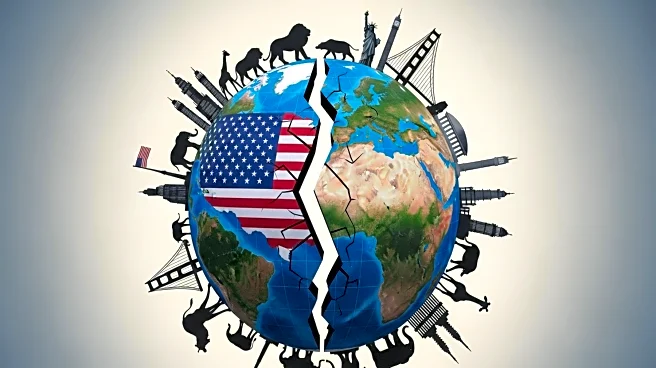What's Happening?
The U.S.-Africa trade agreement, known as the African Growth and Opportunity Act (AGOA), expired this week despite indications from the White House that President Trump was open to extending the program for another year. AGOA, a 25-year-old trade program, provided duty-free access to the U.S. market for over 30 sub-Saharan African countries, fostering job creation and economic growth. However, the focus on reciprocal tariffs by the Trump administration led to AGOA being deprioritized. As a result, tariffs on apparel from countries like Lesotho, Kenya, and Madagascar have significantly increased, threatening employment and economic stability in these regions.
Why It's Important?
The expiration of AGOA has significant implications for U.S.-Africa trade relations and the economies of participating African countries. The lapse in the agreement could lead to job losses and increased economic hardship in sub-Saharan Africa, where many industries rely on AGOA for market access. The situation also raises concerns about the U.S.'s commitment to Africa, potentially allowing rival powers like China and Russia to expand their influence on the continent. The lapse could also affect U.S. businesses that source products from Africa, as they may face higher costs or need to find alternative suppliers.
What's Next?
There is still a possibility for AGOA to be renewed. U.S. lawmakers could work on a short-term funding extension or a continuing resolution to reinstate the program. However, with one chamber of Congress on recess and ongoing negotiations to avert a government shutdown, the timeline for such actions remains uncertain. The outcome will depend on the political will and legislative priorities of the U.S. government in the coming months.
Beyond the Headlines
The expiration of AGOA highlights broader issues in U.S.-Africa trade relations, such as the need for diversification and increased competitiveness of African economies. Critics argue that AGOA has not fully achieved its goals, as a significant portion of U.S. imports from Africa are concentrated in a few countries and sectors. The situation underscores the challenges of balancing domestic economic policies with international trade commitments.











